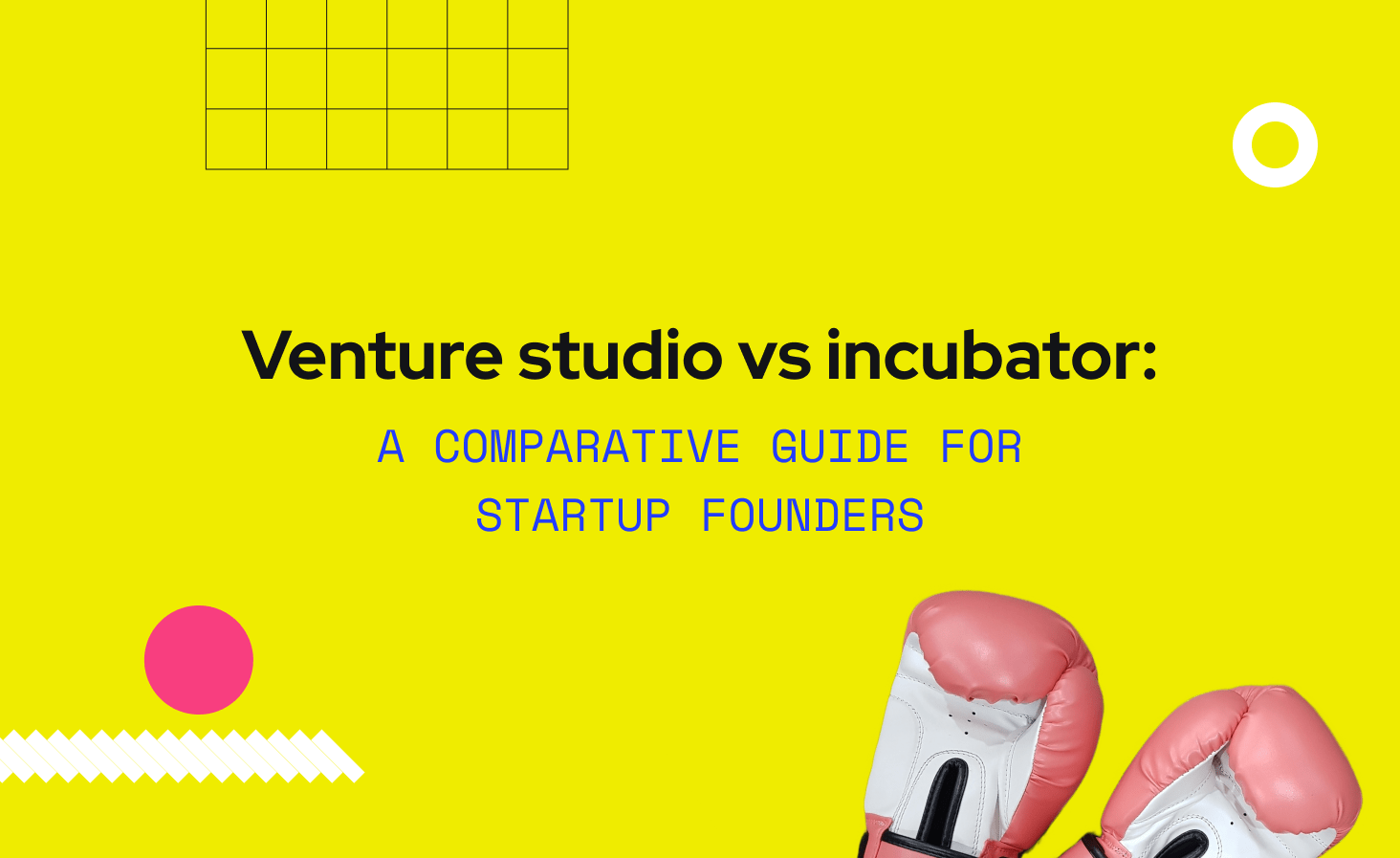Did you know that 10% of startups fail within the first year? There's more - about 90% of founders give up or their businesses fail? However, the other 10% manage to make a difference and are here to stay!
Let's consider a hypothetical scenario where you are a startup founder of a disruptive digital business, but you don't know much about software development. Is this similar to founding a bakery without knowing much about baking? Well, frankly... Yes. So what are you going to do? Hire expert bakers, of course. So here’s what you need to do:
Pick your devs right
When it comes to the development of your product, don't try to minimize the budget at all cost. Work with partners who know what they're doing, align with your vision, and let them do their job like the professionals they are. You need to be aligned with the person/team who's building your product at every stage of product development, even if you're pushing your MVP.
A very often mistake for non-tech founders is to try and learn how to code themselves. Now, of course, it’s always good to learn something new. But learning technical skills to build a commercial product is a long journey and you will need to study different technologies and you will most likely spend a lot of time fixing bugs. So again - just pick your devs right!
Don’t avoid all things tech
Yes, it’s true you shouldn’t try to become a developer yourself. You need to stick to what you’re good at, do your job and let your team and partners do theirs. However, you can’t really run a tech startup without having a basic knowledge of the technologies that apply to your product. Of course, you won’t need an IT degree or some in-depth knowledge of writing code, but you should feel comfortable around the topic. So ask questions and listen to your tech partners when they educate you.
Develop excellent communication skills
Now that you've selected a team of professionals you can trust, forget about micromanaging. Of course, there needs to be a well-established outline of the project, but let's face it - you may not always know what the best approach or deadline is. So, assemble your dream team, communicate everything in a clear, straight-forward manner and let them develop your product.
Now that we've mentioned how important it's to have a dream team, let's talk a bit about how to build one!
Work with people with the same beliefs
Easier said than done? Not really. Work with people who are experts when it comes to software development, but most importantly, who are also both passionate about your project and understand its value. Make sure you learn about their beliefs in advance. Find out what gets them pumped up, not just in business, but in life.
Find the best co-founder
Don’t look for a developer to be your co-founder so that they can code for free. We’ve already covered this, but let’s say it one more time: don’t try to save money when it comes to developing. Instead, find the best partner to match your ideas, values and beliefs. Find someone who you can trust and work with side by side and together you will grow your team step by step towards success.
Don’t expect a fixed price and timeline
Yes, a good development team will give you educated estimates in terms of price and timeline, and no, you shouldn’t start your project without any estimate. However, your tech partner can’t tell you with absolute certainty how much your product will cost or how long it will take to deliver. You will have to accept some risk that the product may cost more and take longer than estimated. That’s yet another reason to choose your tech partner wisely.
Don’t wait too long to launch your product
Have you heard? The time when shiny new products are polished to perfection before their official launch is over. So now what? Well, just follow the lean approach! This means releasing early and then developing further over time. Or in other words, release your MVP (minimum viable product) - a version of your product which will allow your team to collect the maximum amount of validated learning about customers with the least effort.
Don’t forget about simplicity
“Young founders tend to complicate things too much, from structuring partnership agreements, financing, leases, etc. This is not a place to be creative; keep it simple.”
— Jay Levy, Co-Founder, Zelkova Ventures and Uproot Wines
Jay said it best, we don’t need to elaborate further. Make sure you don’t lose focus. We know there’s a lot going on and you have countless decisions to make. Just keep it simple and remember to hold tight to that big idea you started with as you go.
Embrace agility
Focus on words like ‘nimble,’ ‘flexible,’ ‘speedy,’ and ‘free-flowing.’ You have to keep an open mind and stay agile enough to overcome changes and bumps. Be quick to adapt and stay sharp, but flexible. Create an agile workflow dynamic and you will be able to forecast when to bend, pivot, and alter to accommodate demands. Have in mind that being adaptive, seamless, competitive, evolutionary, and innovative are necessary for your success.
And last but not least, a mistake most people, regardless of if they are non-tech founders or they run a bakery is …not trusting themselves.
Trust yourself
We know this one is a bit cheesy but seriously… trust yourself! You’ve spent the time to find the best developers, you’ve learnt to be a great communicator, you’ve adopted some lean principles, and you are focused and well-prepared. So go ahead and do your thing!








